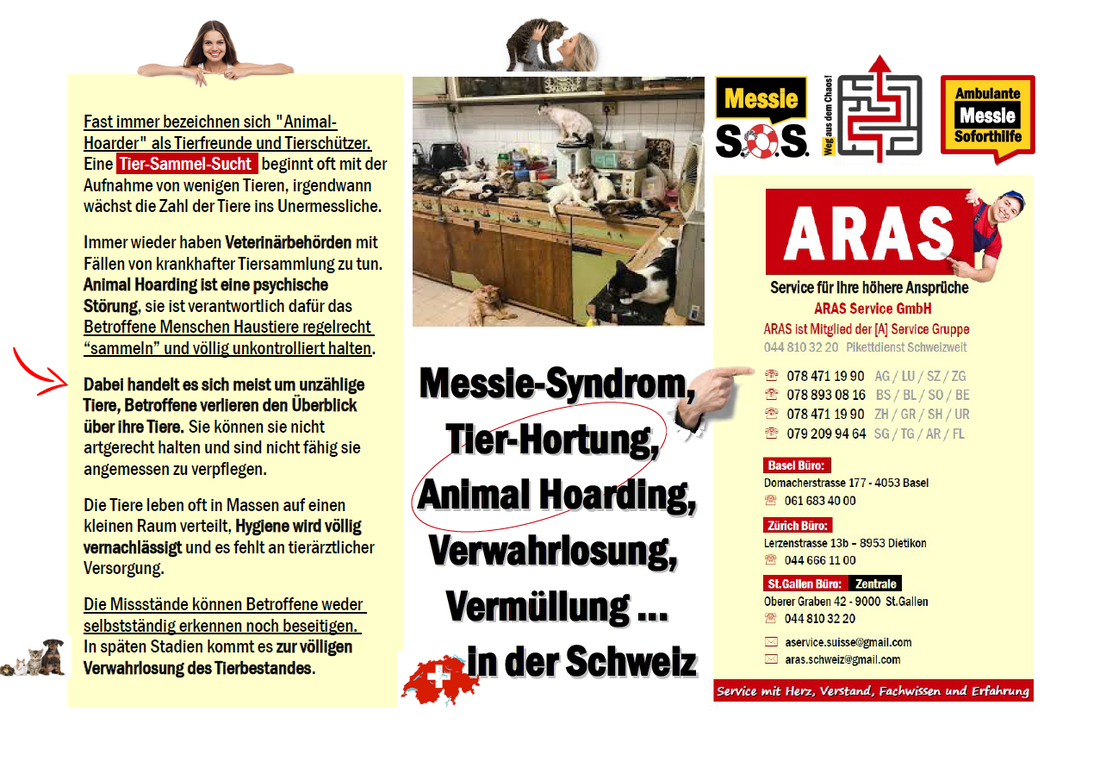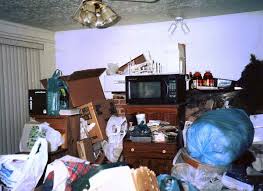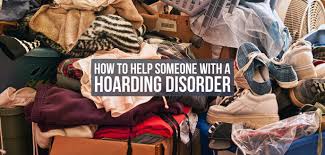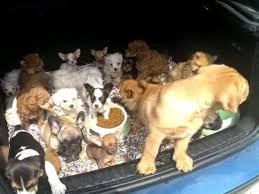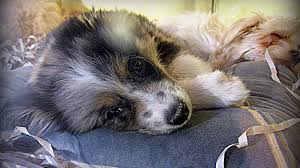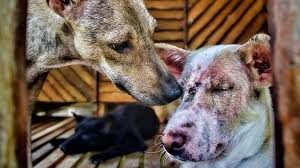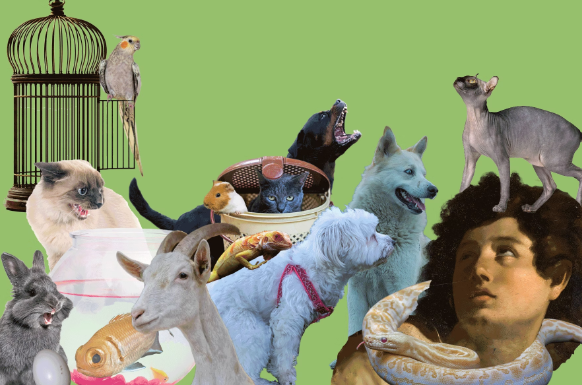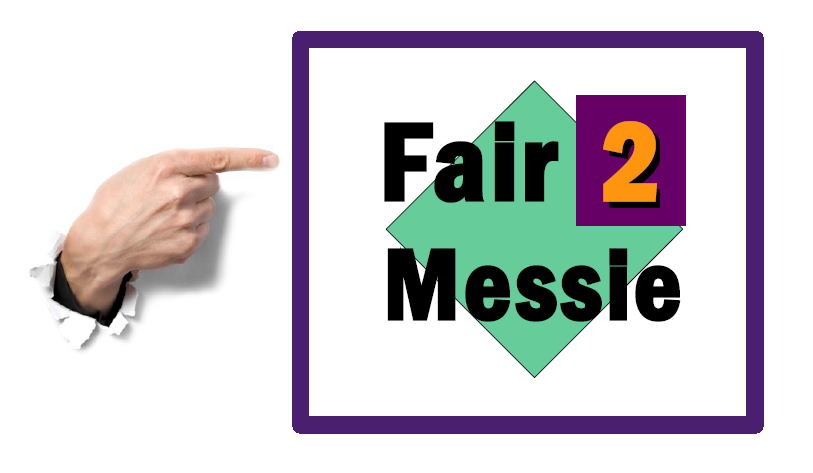|
Switzerland: compulsive hoarding? Whats mean this?
www.Animal-Hoarding-in-der-Schweiz.ch www.Verwahrlosung-und-Messie-in-der-Schweiz.ch Questions and Answers about Compulsive Hoarding Is hoarding a kind of obsessive-compulsive disorder? Right now, compulsive hoarding is considered by many researchers to be a type of obsessive-compulsive disorder. However, for some people, compulsive hoarding may also be related to:
How common is compulsive hoarding? What are its features? We don't know exactly. Some researchers have guessed that about half of one percent of the population suffers from compulsive hoarding, but the actual number may be much higher. People usually start hoarding during childhood or early adolescence, although the problem usually does not become severe until the person is an adult. Compulsive hoarding may run in families. Many people with compulsive hoarding do not recognize how bad the problem really is; often it is a family member who is most bothered by the clutter. What causes compulsive hoarding? Compulsive hoarding is thought to result from problems in one or more of these areas: Information processing. People with compulsive hoarding often have problems such as: Difficulty categorizing their possessions (for example, deciding what is valuable and what is not)
Beliefs about possessions. People with compulsive hoarding often: Feel a strong sense of emotional attachment toward their possessions (for example, an object might be felt to be very special, or a part of them) Feel a need to stay in control of their possessions (and so they don't want anyone touching or moving their possessions) Worry about forgetting things (and use their possessions as visual reminders) Emotional distress about discarding. People with compulsive hoarding often:
|
Animal hoarding is a compulsive behavior in which people obtain and maintain an excessive number of animals without providing them with sufficient shelter, care, or food.
Compulsive compulsive disorder, personality disorder, paranoia, delusional thinking, attachment disorders, depression, and paranoia are all components of animal hoarding, which is a complex disorder. Animal hoarding can happen to anyone, regardless of age or socioeconomic status. Those who hoard animals frequently struggle to part with them because they have deep emotional attachments to them and want to keep memories connected to them. Animal hoarders' houses get so untidy and cluttered that they are uninhabitable, and the animals suffer from illnesses, malnutrition, overcrowding, and poor health. All parties involved suffer from animal hoarding, so it's critical to identify the symptoms and get treatment to deal with the disorder. Although it is not recognized as a separate mental illness, hoarding is a severe form of compulsive behavior that can become extremely harmful if left unchecked, harming the hoarder as well as people around him. According to estimates, this compulsive behavior affects more as 1% of the Swiss population. People who collect various items tend to engage in various forms of hoarding. They occasionally even gather breathing, living animals. Animal hoarding is a hoarding behavior defined by an excessive need to maintain a large number of animals without giving them access to the bare minimum of shelter, food, and hygiene. People who have this illness will overcrowd their homes with a wide variety of animals, such as dogs, cats, birds, rodents, reptiles, and in certain situations, even farm animals. Every year, there are about 10,000 documented cases of animal hoarding, and many more go unreported. The bad news is that there are increasing reports of animal hoarding. We're going to dive deep into the perplexing and frequently tragic realm of animal hoarding today in an attempt to help you better understand how this seemingly altruistic behavior ends up harming so many animals. We will also go over what to do if you witness animal hoarding in action. Firstly, it is important to clarify what constitutes animal hoarding and how it differs from caring for a large number of animals.
This is not as simple as you might think because the ability to care for the animals one keeps is more important than the quantity of animals one keeps when determining if one is considered an animal hoarder. There is no set threshold number that designates a pet owner as a hoarder, so if you have twelve cats, dogs, or any other kind of animal, you are not considered to be hoarding as long as you provide them with proper housing, food, and medical attention. But an individual who owns more pets than is customary without giving them the barest necessities, and who is self-delusional and incapable of acknowledging his own limitations in caring for those animals, is deemed an animal hoarder. |
|
ARAS ist Mitglied der [A] Service Gruppe
044 810 32 20 Pikettdienst Schweizweit Zentrale: 044 810 32 11 Notruf: 079 209 94 64 messiehilfe.schweiz@gmail.com aservice.suisse@gmail.com aras.schweiz@gmail.com 078 893 08 16 BS / BL / SO / BE 078 471 19 90 ZH / GR / SH / UR 078 471 19 90 AG / LU / SZ / ZG 079 209 94 64 SG / TG / AR / FL ARAS SERVICE GMBH OBERER GRABEN 42, ST. GALLEN 9000 044 666 11 00 |
ARAS "Messiehilfe Schweiz" ist vertrauter,
diskreter, erfahrener Fachpartner im Fall: Messie-Syndrom, Diogenes-Syndrom, Tier-Hortung, Animal-Hoarding, Verwahrlosung bzw. Vermüllungs-Syndrom, ... mit Herz, Verstand, Fachwissen und Erfahrung: > für Betroffene > für Angehörige > für Hilfsorganisationen, > für Institutionen der Senioren > für Präventions-Stellen der Suchtkranken, > für Invalidenorganisationen, > für Betreuungsstellen, > für Behindertenorganisationen, > für Sozialämter, > für alle Soziallstellen, > für Gemeinden und lokale Behörden, > für Spitäler und Kliniken |
Messies bzw. Tier-Horter (Animal-Hoarder) leiden darunter, insbesondere im privaten Bereich,
keine zeitliche und oder räumliche Ordnung herstellen oder halten zu können, in der sie sich wohlfühlen.
Dieses "Unwohlsein" kann durchaus die Lebens-einschränkenden Ausmasse einer Krankheit (?) annehmen.
Es gibt noch so gut wie keine wissenschaftliche Definition, geschweige denn Erklärung oder gar Behandlungsmethode.
Zugrunde liegt diesem Phänomen eine bisher noch kaum vollständig verstandene Unfähigkeit der Betroffenen,
brauchbar und unbrauchbar zu unterscheiden und dieser Einsicht gemäss zu handeln.
keine zeitliche und oder räumliche Ordnung herstellen oder halten zu können, in der sie sich wohlfühlen.
Dieses "Unwohlsein" kann durchaus die Lebens-einschränkenden Ausmasse einer Krankheit (?) annehmen.
Es gibt noch so gut wie keine wissenschaftliche Definition, geschweige denn Erklärung oder gar Behandlungsmethode.
Zugrunde liegt diesem Phänomen eine bisher noch kaum vollständig verstandene Unfähigkeit der Betroffenen,
brauchbar und unbrauchbar zu unterscheiden und dieser Einsicht gemäss zu handeln.
ARAS MESSIE-HILFE Schweiz: Messie, Messi, Messie-Räumung, Messie-Reinigung, Messie-Räumung,
Messie-Räumung, Messie-Beratung, Messie-Soforthilfe, Messie-Hilfe, Messie-Reinigung, Messie-Desinfektion, Ungeziefer-Bekämpfung, Räumung, Tier-Hortung,
Messi-Reinigung, Messie-Entsorgung, Messie-Entsorgung, Entrümpelung, Messie-Entrümpelung, Tierhorten, Kaufsucht, Haushaltsräumung, Hausräumung,
Haushaltsauflösung, Entsorgung, Messie-Wohnung räumen, Messie-Berater
Messie-Räumung, Messie-Beratung, Messie-Soforthilfe, Messie-Hilfe, Messie-Reinigung, Messie-Desinfektion, Ungeziefer-Bekämpfung, Räumung, Tier-Hortung,
Messi-Reinigung, Messie-Entsorgung, Messie-Entsorgung, Entrümpelung, Messie-Entrümpelung, Tierhorten, Kaufsucht, Haushaltsräumung, Hausräumung,
Haushaltsauflösung, Entsorgung, Messie-Wohnung räumen, Messie-Berater



